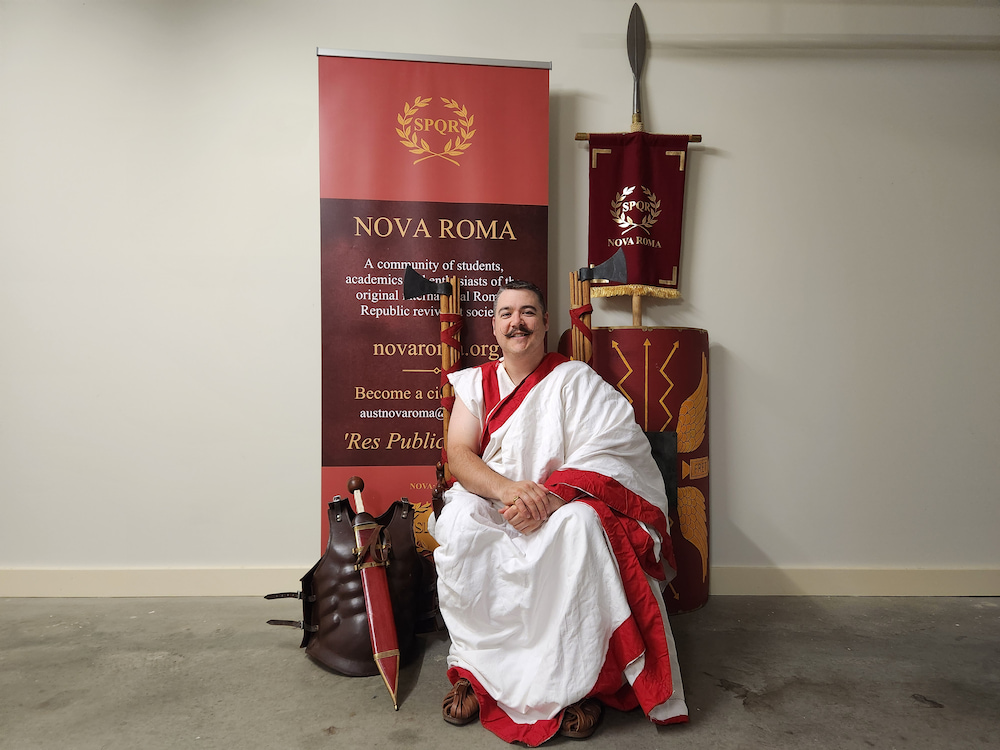The Roman Republic ended more than two thousand years ago, but history enthusiasts worldwide – including a new group here in the ACT – are determined to preserve and celebrate ancient Roman religion, culture, and virtues in a modern context.
Nova Roma, an international living history and education organisation, “gives you an avenue to connect to the rest of this network that has an interest in Ancient Rome,” says Warrick Jones – or, as he is known in the society, D. Aurelius Ingenarius, propraetor (governor) of Provincia Australia.
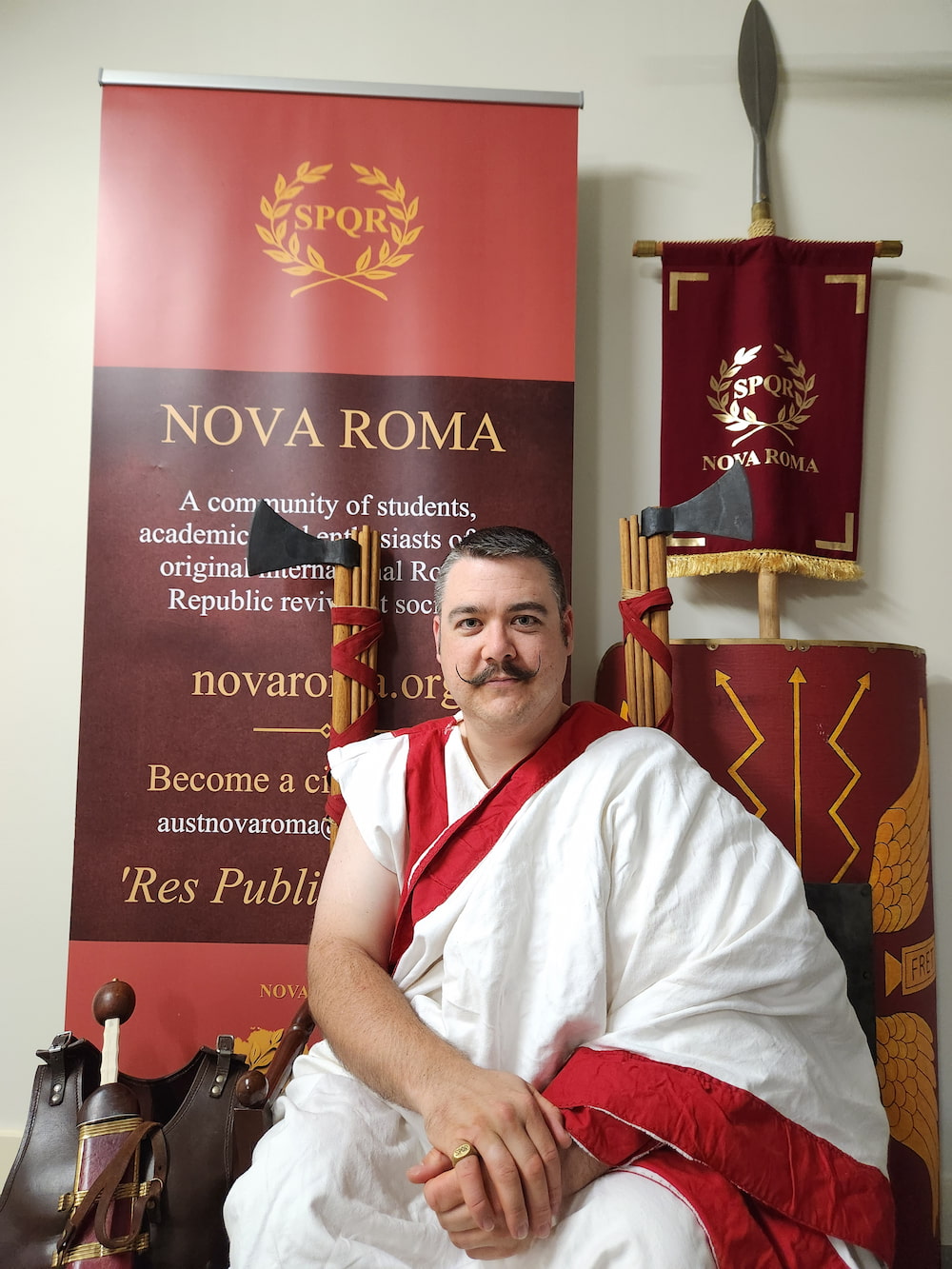
Having moved to Canberra last year, he has set up the ACT branch, which he hopes will grow into a flourishing vicus. So far, 15 people have formally registered, including former Classics students and scientists fascinated by the Romanisation of Iron Age Europe.
There will, Mr Jones intends, be workshops on making tunics, togas, and jewellery; on how to sacrifice to the gods; social events at Italian restaurants; playing Roman-themed board games; and Latin study groups. (Classical, not church, of course.)
“A lot of people out there have an interest in Ancient Rome in some form or another,” Mr Jones said.
Those interested in joining Nova Roma can apply to become citizens online and email [email protected]. Membership is free, although paying voluntary taxes gets you into a higher class, and can improve your voting in elections, Mr Jones said.
“We don’t have a lot of opportunities in our day-to-day life to really get into and celebrate our interests,” Mr Jones said.
“It’s a great opportunity to not only meet some fellow Canberrans, or broadly across Australia, but share a common interest, and learn a fascinating language like Latin.”
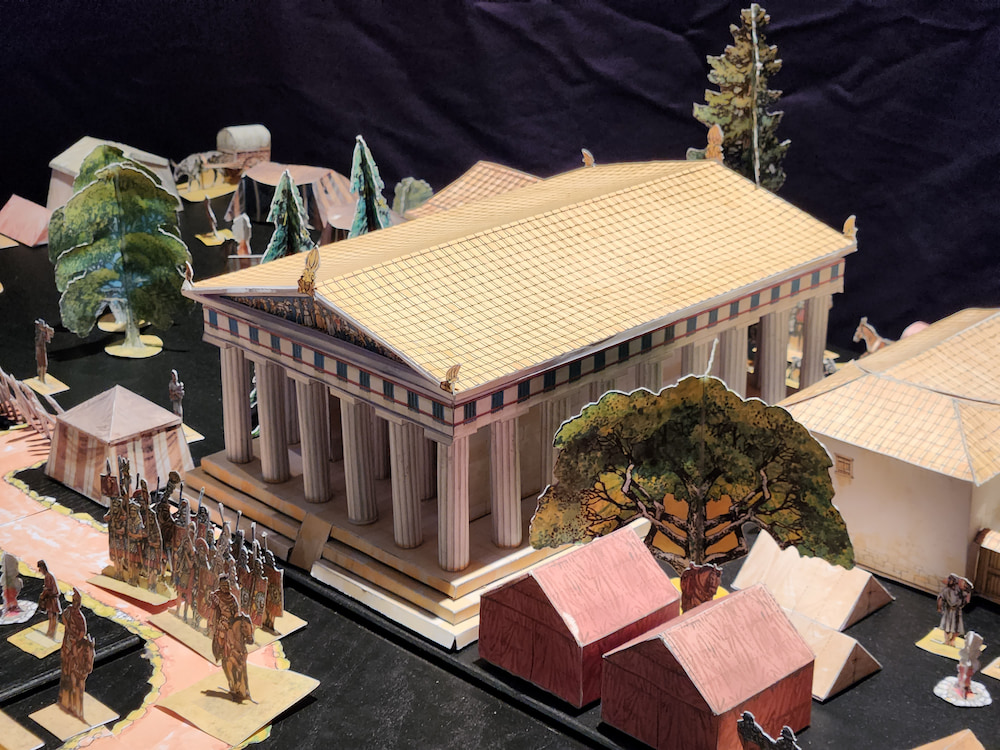
Nova Roma aims to teach and study Roman society through the framework of a symbolic micronation based on the Roman republic. The organisation has nearly 6,000 members across the world, all citizens of the micronation taking a Latin name. Mr Jones’s nom de guerre, for instance, pays tribute to the emperor Marcus Aurelius, and refers to his profession as an engineer.
Mr Jones himself joined in 2019; he came across Nova Roma in his research to create a sequel to the board game Republic of Rome, and ended up reviving the Australian organisation, at that time almost moribund.
“I’m not an expert by any means; an enthusiast is probably the best way to describe me,” he said.
“It’s a little bit niche; it’s a little bit unique … but I’ve learned so much about Ancient Rome and I’ve become so fascinated with Ancient Rome since I discovered it.”
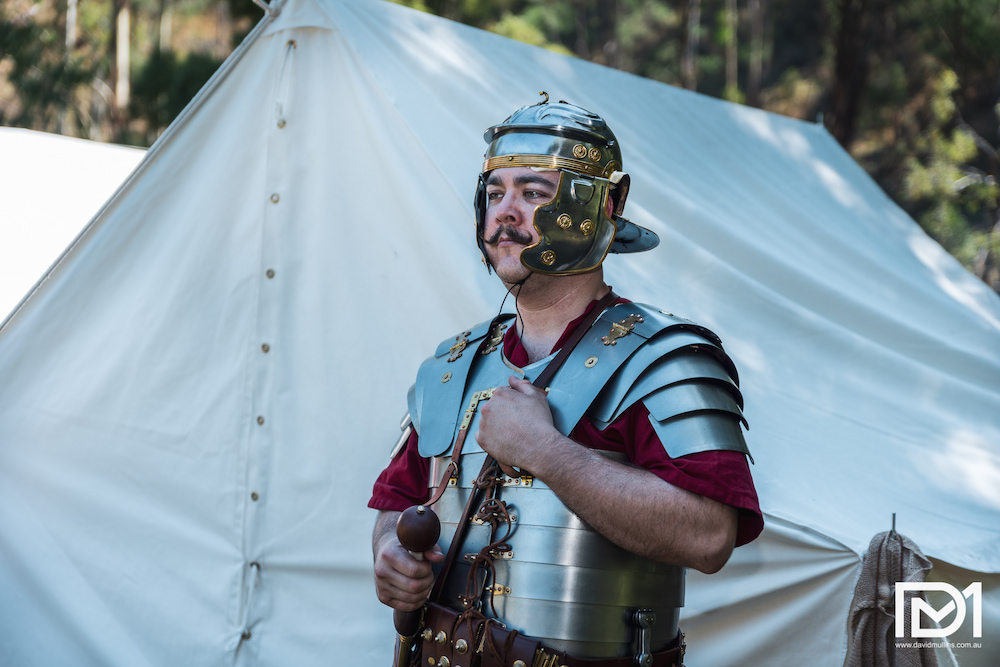
Founded in the USA in 1998, Nova Roma began as an attempt to reconstruct the Romans’ public and private religious rites, which were inextricable from its governance structure. Now the members try to revive all aspects of Roman life, both cultural and spiritual.
“Nova Roma means different things to different people,” Mr Jones said. “Some people are there for the academic side and the research. For others, it is a community for those that practice religio Romana as cultors.”
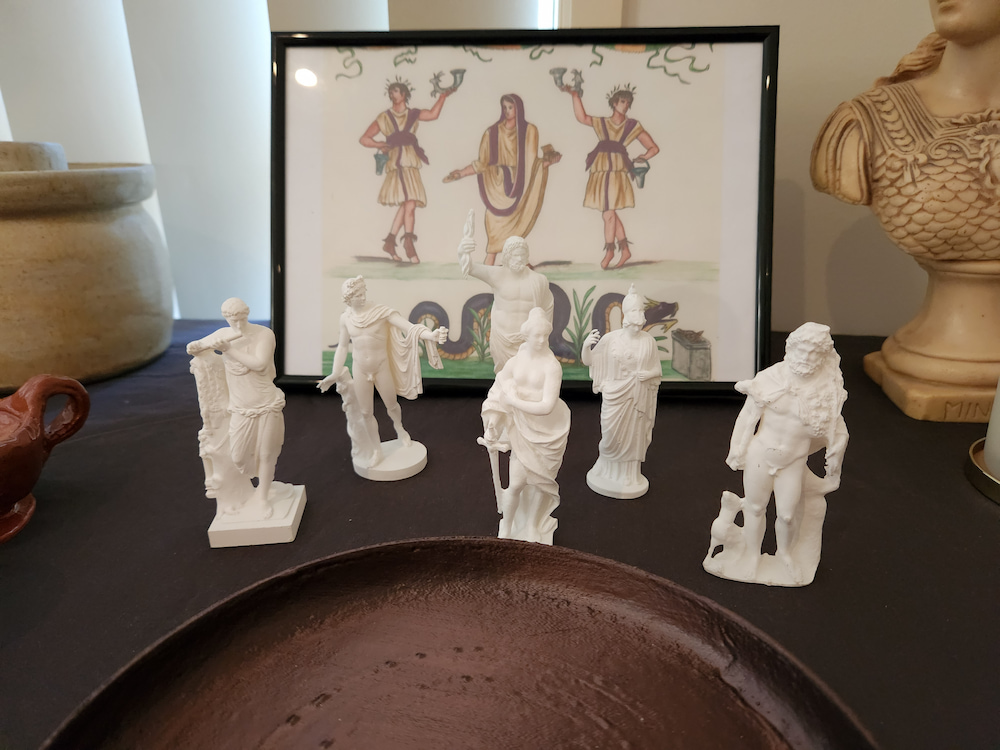
Nova Roma re-enacts the Republican political system; there is a formal Roman senate, and members can run as candidates for public office as magistrates, consults, praetors, censors, quaestors, and consuls. They try to live by Roman virtues, the custom of the ancestors (mos maiorum), and the Roman way (Romanitas). Some members are Roman Pagans, although, Mr Jones says, there are no restrictions on religious practices – customs can be adapted to accommodate Muslim or Christian members.
Where practical, they follow the Ancient Roman calendar and celebrate the Ludi (public games): virtual chariot and horse races, gladiator fighting, and animal hunting. (“Obviously with a modern twist,” Mr Jones says; “there are no bloody sacrifices anymore.”) They hold poetry and art competitions; study Roman history; practice Roman crafts; and, of course, study Latin.
In fact, Nova Roma is “the living embodiment of the phrase ‘Latin is not dead’,” but members do not need to have “spoken a lick of Latin before”, Mr Jones says. Nor should those fearing dryasdust rote memorisation of declensions of verbs, or racking your brains to remember the vocative for ‘table’, be deterred. The group uses the natural approach: a textbook slowly introduces vocabulary and syntax in an intuitive way. The organisation uses formal Latin names for senatus consulta (edicts) and on social media.
“There’s always Latin throughout, so you can’t help but learn Latin,” Mr Jones said.
Although Rome was a patriarchal society, men and women can participate equally in Nova Roma. Indeed, one respected woman senator (or senatrix) was given the title of Augusta for her service.
Other elements have been modified for modern ethics. “We don’t condone slavery; we don’t condone animal cruelty and sacrifice,” Mr Jones said.
Nova Roma has partnerships with other Roman-themed societies globally, including re-enactment groups: Roman legions in Melbourne and Adelaide, and the National Military Re-enactment Group in Canberra.
“Ancient Rome has been prolific through history, and has impacted so many parts of our modern-day society,” Mr Jones said. “It would be really good to appreciate all those things that come from nearly 2,000 years ago.”

